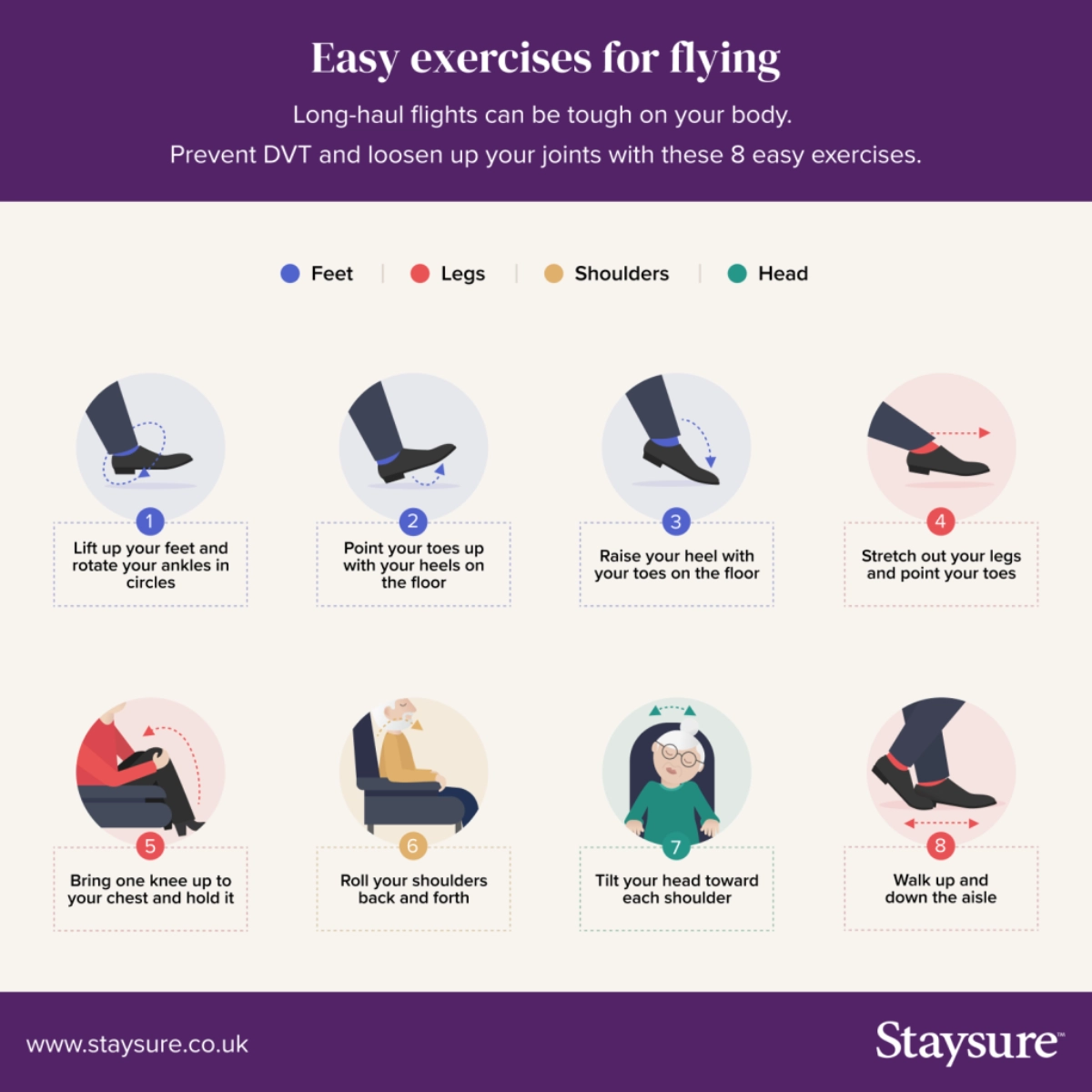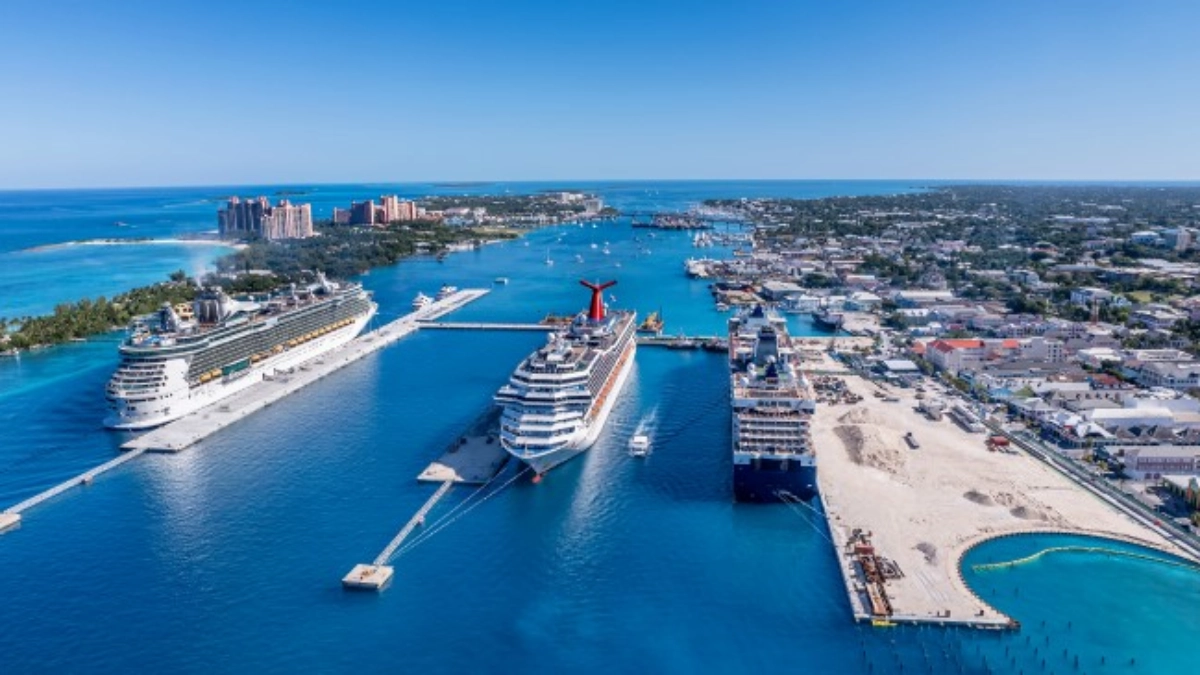Can you fly with high blood pressure? Tips for travelling safely
Travelling should be an uplifting experience – but if you have hypertension, it’s normal to feel a little anxious about your upcoming trip.
The good news? High blood pressure usually doesn’t prevent travel, even over long distances. Whether you’re flying, cruising, or taking a road trip, most journeys are safe as long as your condition is well-managed.
But, if your blood pressure isn’t currently controlled with medication, it’s a good idea to consult your GP before you set off. This is particularly important if you’re planning to fly, as changes in altitude can impact your body.
Can you fly with high blood pressure?
Yes, flying with high blood pressure is usually completely fine, especially if you’re managing it with medication. With a bit of preparation, you can ensure your trip is safe and smooth.
Speak to your GP before you travel
It’s a good idea to check in with your GP before heading off. They can confirm if it’s safe for you to travel and tweak your treatment or medication dosage if needed. It’s also the perfect chance to ask for advice on managing your condition while you're away.
If you're flying across time zones or taking your medication at specific times of day, your GP can help you safely adjust your schedule, so everything runs smoothly.
Take the stress out of your airport journey
Airports can be overwhelming, especially with long queues or tight schedules. But a few simple steps can help you stay relaxed and in control.
Give yourself plenty of extra time at each stage of your trip to keep things calm. Consider booking a hotel near the terminal and dodge that last-minute morning rush if you've got an early flight. If mobility’s a concern, pre-booking assistance can make things much easier.
Pack your medication wisely
Keep your medication in your hand luggage for easy access when you need it. Be sure to pack some extra in both your hand luggage and checked baggage to prepare for potential delays or emergencies. It’s also a good idea to bring a copy of your prescription in case you need a refill while you’re away. Your pharmacist can guide you on the brand names or equivalents available in your travel destination.
If you're carrying liquid medication over 100ml, check with your airline beforehand, as you might need a letter from your doctor or pharmacist to comply with their regulations.
Know your DVT risk
If you’ve got high blood pressure, your risk of deep vein thrombosis (DVT) during long flights might be slightly higher. That risk increases even more if you’ve had DVT before, are on certain medications like hormone therapy, have had recent surgery, or find it harder to move around.
Get up and move during the flight, stay hydrated, and skip alcohol. Even small movements, like flexing your feet, lifting your knees, or rolling your ankles, can keep your blood flowing. These are simple steps to reduce the risk and if you’re unsure, ask your GP or pharmacist if compression stockings could be a good option for you.
Look out for DVT warning signs
-
Pain, swelling or tenderness in one leg (usually your calf).
-
Warmth or redness around the area.
-
Sudden shortness of breath or chest pain (this might mean a clot has reached your lungs).
If you notice these signs, don’t brush it aside. Get medical help straight away.
We’ve put together some easy in-flight exercises to help you move and reduce your risk. Give them a go next time you’re in the air.

Does flying affect blood pressure?
Yes, it can. At high altitudes, even in a pressurised aircraft cabin, passengers are at risk of hypoxaemia (low oxygen concentration in the blood). Although this isn’t felt by most people and won’t necessarily affect people with high blood pressure, if you have heart disease or heart failure – you could be more sensitive to hypoxaemia.
Take some snacks from home for the journey, as airlines tend to give out salty peanuts or crackers, which can increase blood pressure levels. It’s also a good idea to avoid alcohol and sedatives as they can make you more prone to staying in one position, or falling asleep, during the flight.
If your doctor recommends oxygen for flying, most airlines will ask you to travel with your own portable oxygen concentrator (POC) rather than providing oxygen themselves. Airlines typically don’t supply oxygen onboard, but they do allow approved, battery-operated POCs, as long as they meet aviation safety standards.
To fly with a POC, you’ll usually need to:
-
Contact your airline well in advance, ideally when you book
-
Complete a medical clearance form with your doctor
-
Carry enough batteries to last at least 150% of the flight time, in case of delays
If you don’t already have a POC, you may need to rent one through an external medical supplier. Some airlines can recommend trusted providers, but they don’t arrange the rental directly.
For the latest guidance, reach out to your airline’s special assistance team – they’ll confirm what’s allowed and help you prepare for a safe journey.
Signs to look out for while flying with high blood pressure
Flying with high blood pressure is usually safe but keeping an eye on how you're feeling mid-flight is crucial. If something feels off, speak up. Cabin crew members are well-trained to handle medical situations, so it’s better to ask for help rather than keeping silent.
Here are some warning signs to watch for during your flight:
-
Chest pain or tightness
-
Dizziness or feeling light-headed
-
Shortness of breath
-
Blurred vision
-
Severe headache
-
Nausea or confusion
If you experience any of these, don’t hesitate to alert the cabin crew.
Can I take a blood pressure monitor with me?
For most passengers, checking blood pressure mid-flight isn’t necessary unless your doctor has specifically advised it. However, if part of your care plan includes bringing a monitor on board, there are a few things to prepare for a seamless experience.
You can start by contacting your airline ahead of your trip to clarify their policy. Most battery-operated blood pressure monitors are permitted in the cabin, but some carriers might request a doctor’s note or extra documentation to approve the device.
When packing, make sure the monitor is easily accessible in your hand luggage. Double-check that the batteries are fully charged and pack spares if needed – that way, you’ll be prepared if a reading is required. If your doctor has recommended regular checks during the flight, try to take your readings at the same time each day as they’ve advised.
Is there a blood pressure limit for flying?
There’s no legally imposed limit for blood pressure that prevents you from flying. That said, to stay safe and comfortable during your trip, it’s a good idea to make sure your blood pressure is well managed beforehand.
Generally, blood pressure is considered high if it’s consistently above 140/90mmHg. If your readings are often above this range, it’s worth having a chat with your GP. They can help you get it under control with tailored advice, medication, or adjustments to your current treatment plan.
Tips for travelling with high blood pressure:
-
Buy travel insurance for pre-existing medical conditions to cover any high blood pressure related medical costs, should you need treatment while you are away.
-
Before you travel, have a quick chat with your doctor to make sure you're good to go.
-
Pack your medication in your hand luggage so that it is easily accessible during travel. Remember to pack extra medicines to cover for any delays or loss.
-
Bring your own food as airlines tend to provide snacks with added salt which can increase blood pressure levels.
-
Avoid alcohol and any medication with a sedative effect – they can make you less active during a flight.
-
If you're on a long-haul flight, get up and stretch your legs every couple of hours. You can also do some simple seat exercises to improve blood flow and stay comfortable throughout your trip.
-
Drink plenty of water.
Remember to keep a note of your medications and dosages with you, along with emergency contact details, just in case they're needed.
Please note: The materials in this post are in no way intended to replace the professional medical care, advice, diagnosis or treatment of a doctor. The article does not have answers to all problems. Answers to specific problems may not apply to everyone. If you notice medical symptoms or have questions on the topics raised in this article, please consult your doctor.
